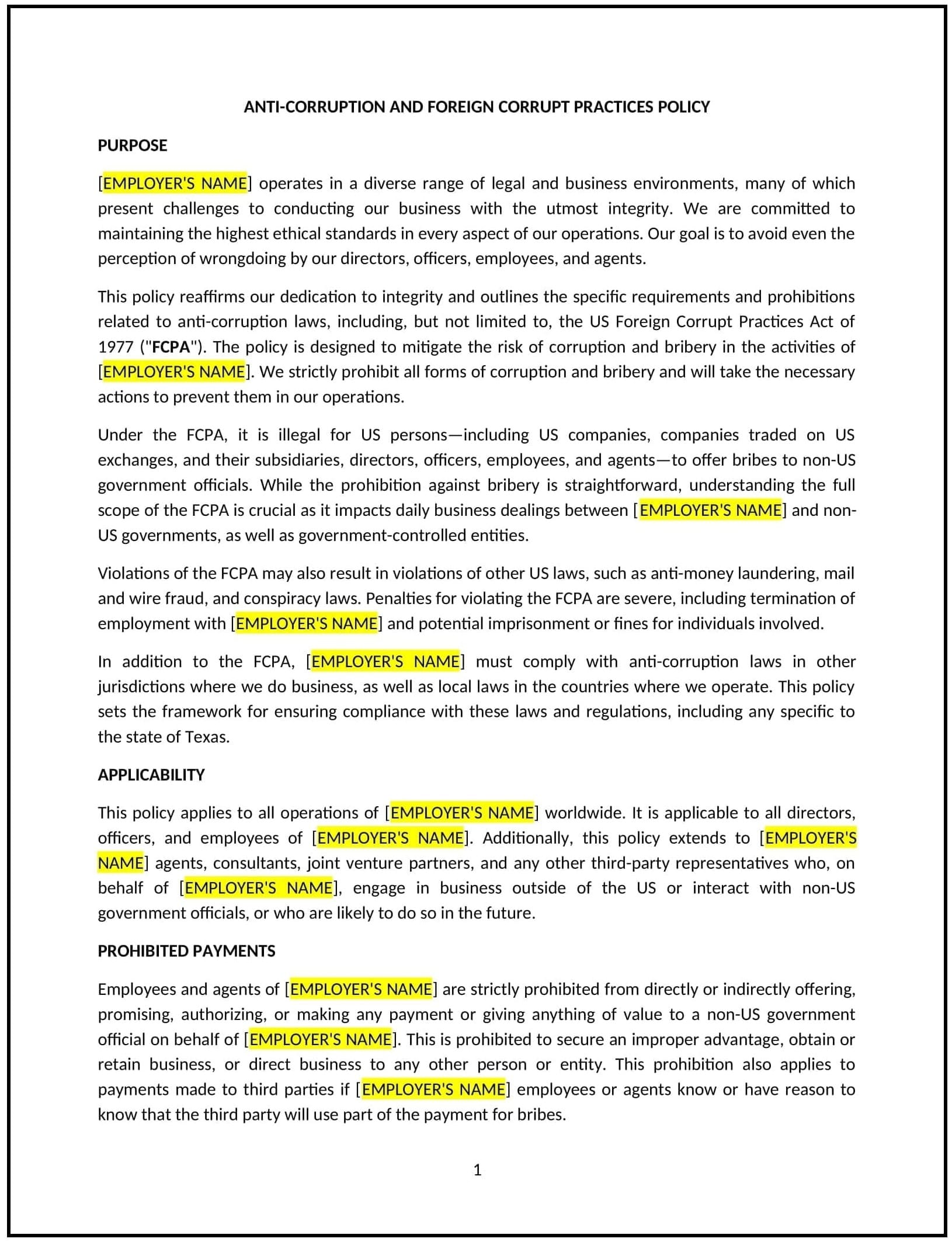Anti-corruption and foreign corrupt practices policy (Texas): Free template
Got contracts to review? While you're here for policies, let Cobrief make contract review effortless—start your free review now.

Customize this template for free
Anti-corruption and foreign corrupt practices policy (Texas)
In Texas, an anti-corruption and foreign corrupt practices policy establishes clear guidelines to prevent bribery, corruption, and unethical business practices. This policy ensures that employees, contractors, and third-party agents comply with federal laws, such as the Foreign Corrupt Practices Act (FCPA), and uphold the organization's commitment to ethical and lawful business conduct.
The policy outlines prohibited activities, reporting mechanisms, and responsibilities for improving compliance and accountability within the organization.
How to use this anti-corruption and foreign corrupt practices policy (Texas)
- Define prohibited activities: Clearly outline actions that violate anti-corruption laws, such as offering or accepting bribes, kickbacks, or other improper payments to influence business decisions.
- Establish responsibilities: Specify the roles of employees, management, and third-party agents in upholding the organization's anti-corruption standards.
- Provide reporting procedures: Include mechanisms for reporting suspected violations, such as anonymous hotlines or designated compliance officers.
- Detail training requirements: Require regular training for employees and relevant third parties on anti-corruption laws and organizational policies.
- Support compliance: Align the policy with Texas business regulations, federal laws, and international standards to ensure ethical operations.
Benefits of using an anti-corruption and foreign corrupt practices policy (Texas)
- Promotes ethical behavior: Establishes a culture of integrity by reinforcing the organization’s commitment to ethical business practices.
- Supports compliance: Promotes adherence to the FCPA, Texas laws, and international anti-corruption regulations, minimizing legal risks.
- Protects organizational reputation: Reduces the risk of reputational damage from corruption or bribery scandals.
- Encourages accountability: Provides clear guidelines and responsibilities to prevent unethical conduct within the organization.
- Minimizes financial risks: Protects the organization from potential fines, penalties, and losses associated with corruption violations.
Tips for using an anti-corruption and foreign corrupt practices policy (Texas)
- Communicate the policy: Share the policy with employees, contractors, and third-party agents to ensure understanding and compliance.
- Train employees: Provide regular training on anti-corruption laws, reporting mechanisms, and ethical business practices.
- Monitor compliance: Conduct periodic audits and assessments to identify and address potential risks or violations.
- Encourage reporting: Foster a culture where employees feel safe reporting suspected violations without fear of retaliation.
- Review periodically: Update the policy to reflect changes in Texas laws, federal regulations, or organizational priorities.